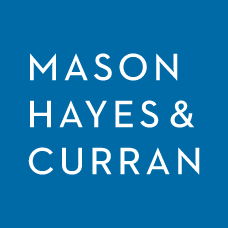Gerard Kelly: Harvesting apples and invalidating trade marks

Gerard Kelly
Gerard Kelly, partner at Mason Hayes & Curran, flags up a significant EU court ruling on trade mark claims and counterclaims.
The EU’s highest court, the CJEU, has recently ruled that a national court acting as an EU trade mark court hearing an action for infringement has jurisdiction to rule on a counterclaim challenging the validity of that trade mark, in circumstances where the infringement claim has been withdrawn.
The CJEU decision, which arose in the context of a trade mark dispute in Germany in the food and beverage sector, illustrates the adoption by the courts of a multi-dimensional approach to interpreting EU legislation. It also offers useful guidance around the procedural aspects of counterclaims in trade mark cases.
In addition, this case makes it clear that those that seek to enforce their trade mark rights risk being subjected to an invalidity counterclaim that they can no longer control. We analyse this decision.
Background
KP is the owner of the EU trade mark for the word mark “Apfelzügle”. The trade mark was registered in 2017 protecting services in Classes 35, 41 and 43 including “services for providing food and drink”, “restaurants” and “catering for the provision of food and beverages”. It is widely recognised that the word “Apfelzügle” denotes a vehicle designed for the harvesting of apples.
In September 2018, TV, a fruit farm operator, and the Municipality of Bodman-Ludwigshafen (MBL), published promotional information on an activity involving the harvesting and tasting of apples. KP brought an action for trade mark infringement before the Regional Court in Munich, seeking an order prohibiting TV and MBL from using the term “Apfelzügle” for the services covered by the mark.
Before the same Court, TV and MBL filed a counterclaim seeking a declaration that the “Apfelzügle” trade mark is invalid on the basis that it lacked distinctiveness and was descriptive and/or generic.
Question referred
At the hearing before the Regional Court of Munich, KP withdrew its infringement claim. On the other hand, TV and MBL pursued their counterclaims. The Regional Court of Munich held that those claims were admissible and that the “Apfelzügle” trade mark was invalid in relation to certain Class 41 services. MBL continued to pursue matters and appealed that judgment to the Higher Regional Court in Munich, seeking a declaration of invalidity regarding the remaining Class 35 and Class 43 services. At that point, the Higher Regional Court of Munich decided to stay the proceedings and to refer the following question to the Court of Justice of the EU for a preliminary ruling:
“Must Articles 124(d) and 128 of the EU Trade Mark Regulation (“EUTMR”) be interpreted as meaning that the EU trade mark Court hearing an action for infringement of an EU trade mark, have jurisdiction to rule on the invalidity of the EU trade mark as asserted in a counterclaim even after the infringement action has been validly withdrawn?”
CJEU decision
The CJEU defined the scope and meaning of ‘counterclaim’ within the meaning of the European Union Trade Mark Regulation (EUTMR). Based on case-law and EU legislation, it held that a counterclaim is not indissociable from a mere defence. Although brought in proceedings initiated by means of another legal remedy, i.e. an infringement action, the counterclaim:
- is a separate and self-standing claim
- the procedural treatment of the counterclaim is independent of the main claim, and
- the counterclaim can be proceeded with even if the principal claim is dismissed
It therefore concluded that the term ‘counterclaim’ within the meaning of the EUTMR is a legal remedy intended to extend the subject matter of the dispute and to obtain recognition of a claim which is separate and independent from the main claim. As such, the counterclaim becomes independent of the main action and continues to exist in the event of withdrawal of the main action.
The CJEU noted that it is apparent from the case law that in the interests of the sound administration of justice, the possibility of bringing a counterclaim enables the parties, in the same proceedings and before the same court, to litigate all their claims against each other that have a common origin. In so doing, the courts seeks to avoid unnecessary multiple proceedings which would create a risk of contradictory judgments. On the contrary, to compel a party which filed a counterclaim to initiate additional proceedings before the EUIPO, as the forum that otherwise has jurisdiction to hear invalidity cases, in the event of withdrawal of the main claim in national proceedings would run against the principal of procedural economy.
The CJEU was ultimately satisfied that the answer to the question referred is that Articles 124(a) and (d) and Articles 128 of the EUTMR must be interpreted as meaning that a national court acting as an EU trade mark court hearing an action for infringement based on an EU trade mark the validity of which is challenged by means of a counterclaim for a declaration of invalidity, still has jurisdiction to rule on the validity of that mark, despite the withdrawal of the main infringement action.
Comment
The CJEU is very clear in its judgment which offers helpful and practical guidance around the definition and procedure for the filing of counterclaims in trade mark infringement cases. The case will now return to the Higher Regional Court in Munich for a determination of MBL’s appeal.
More significantly however, the judgment will serve as a useful precedent to those who are defending trade mark infringement proceedings and who are contemplating filing counterclaims alleging invalidity of the trade mark at issue in the case. This decision highlights the risk for companies that are seeking to enforce trade mark rights and who do not ultimately wish to pursue a matter to trial.

- Gerard Kelly is a partner and head of the intellectual property team at Mason Hayes & Curran.











